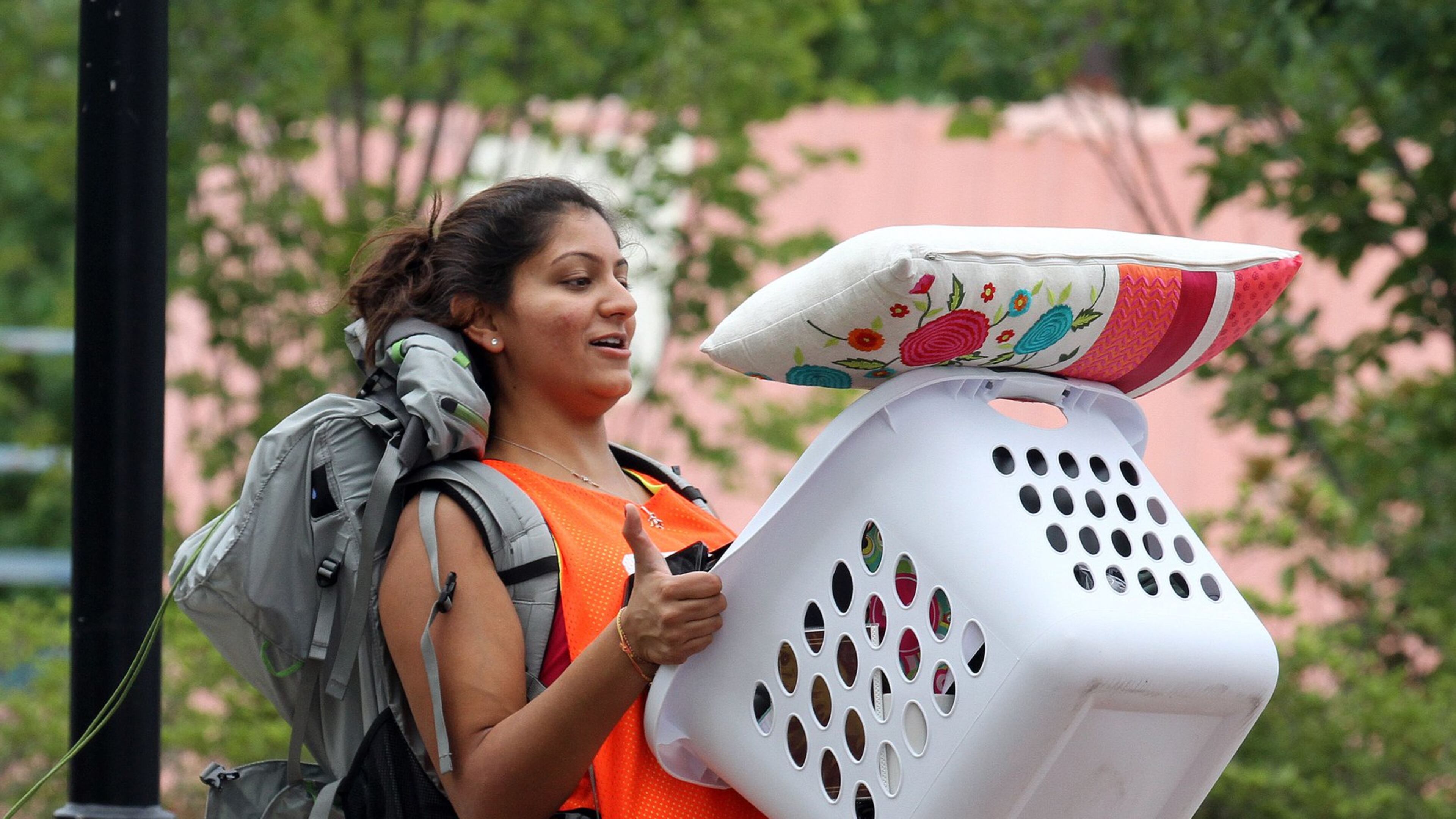OPINION: Starting college? Make the most of it

Dr. Perry Rettig is a community contributor for The Atlanta Journal-Constitution. He is a former vice president at Piedmont University and is now a distinguished university professor at Piedmont.
Today, Rettig offers excellent suggestions to newly minted college students. I would add one more: Don’t wait to do these things. You will be stunned how fast these four years will go by.
By Perry Rettig
For the past eight summers, I have enjoyed the opportunity to speak with new students and their parents at Piedmont University.
While my welcoming remarks are focused on the Piedmont experience, they could just as well introduce families to any liberal arts university in our nation. And perhaps they can offer some advice to any student beginning college.
Because I am not a comfortable public speaker, I read from my script.
So I begin:
There are a lot of emotions going on right now. There is some fear of the unknown and adjustment to another family. There is also excitement and anxiousness about new opportunities.
While you are here with us these next four years, I want you to get your money's worth and your time's worth. You are going to experience a new kind of academic rigor from your professors. Embrace the challenge. There are no shortcuts. Explore different areas. Don't become comfortable with just one area of study.
My primary goal is always for you to be safe – safe to explore who you are becoming. Piedmont University is that safe place to explore and stretch your goals. When I went off to college my dad said, ‘Son, work hard and play hard.' I give you the same advice, but I will add, ‘in a safe way.' My dad then gave me a suitcase and $10. That wasn't much cash in 1980, either.
Your learning should not end at the classroom door. Keep striving for more. Get engaged. Get involved. Go to concerts, theatre productions and art showings. Check out different clubs and intramurals. Join.
I then share two aspirational quotes that explain what a liberal arts education – and the college experience – are all about. (As an aside, I should note here that one of our student leaders always helps me prepare a PowerPoint slide which is shown on a big screen behind me.)

The first quote we show comes from Thomas Jefferson, who said: “Those persons, whom nature has endowed with genius and virtue, should be rendered by liberal education worthy to receive, and able to guard the sacred deposit of the rights and liberties of their fellow citizens.”
“That’s a pretty noble quote,” I tell the students. “Maybe you don’t think of yourself endowed with such genius and virtue. Well, it’s time now that you do.”
I then share a second quote, this one from Martha Nussbaum of the American Association of Colleges and Universities: “When we ask about the relationship of a liberal education to citizenship, we are asking a question with a long history in the Western philosophical tradition. We are drawing on Socrates’ concept of the ‘examined life,’ on Aristotle’s notions of reflective citizenship, and above all on Greek and Roman Stoic notions of an education that is ‘liberal’ in that it liberates the mind from bondage of habit and custom, producing people who can function with sensitivity and alertness as citizens of the world.”
As I tell the students, “I hope these quotes don’t frighten you. I hope they inspire you. Our future leaders are here in this auditorium, today. It’s about to get real!”
I then ask them a question: “What are you most concerned about as you begin your college journey?” Invariably, the results from our freshmen are about money, friends, loneliness, classes, their grades and dorms.
My next question goes back to the parents. What do employers want from our new graduates for their new workforce? This year, experience, integrity, ethics, responsibility, leaders, professionalism, dependability and dedication topped the list.
But what these employers are really looking for can’t be found on your typical academic transcript.
I was a school principal and hired many teachers over the years. Transcripts didn’t tell me a lot. All candidates took similar classes and had roughly the same grades. What made them stand out? Their experiences.
So, how do students meet these aspirations, goals and needs?
Simply put – they get involved.
They study abroad.
They work with their college professor in undergraduate research.
They become leaders — whether it is with the student government, residence halls, student newspaper, clubs, athletics, campus activities board or yearbook.
As I tell the students, check these possibilities out, then join, then ultimately lead.
My final slide raises a question: How can students best ensure that they succeed at Piedmont – or at any college?
The number one predictor of college success is, believe it or not, attending class.
This reminds me of the story of a student who gave advice to his roommate about which class to take. He said, “Take this professor on this day of the week. Trust me, I know what I’m talking about. I’ve been here 7 years.”
Remember, your faculty advisor is your best advisor.
My other advice?
Maintain a 3.0 grade point average; declare a major by your sophomore year; and, have a specific career in mind. You can always change your major or career, but the intent focuses your learning and helps to keep you on track toward graduation.
So, visit the career services office early and often.
And finally, try out new things.
Don’t just head home or back to your dorm room.
Get your money’s worth! Get your time’s worth!
That concludes my welcoming remarks to our freshmen and their parents.

